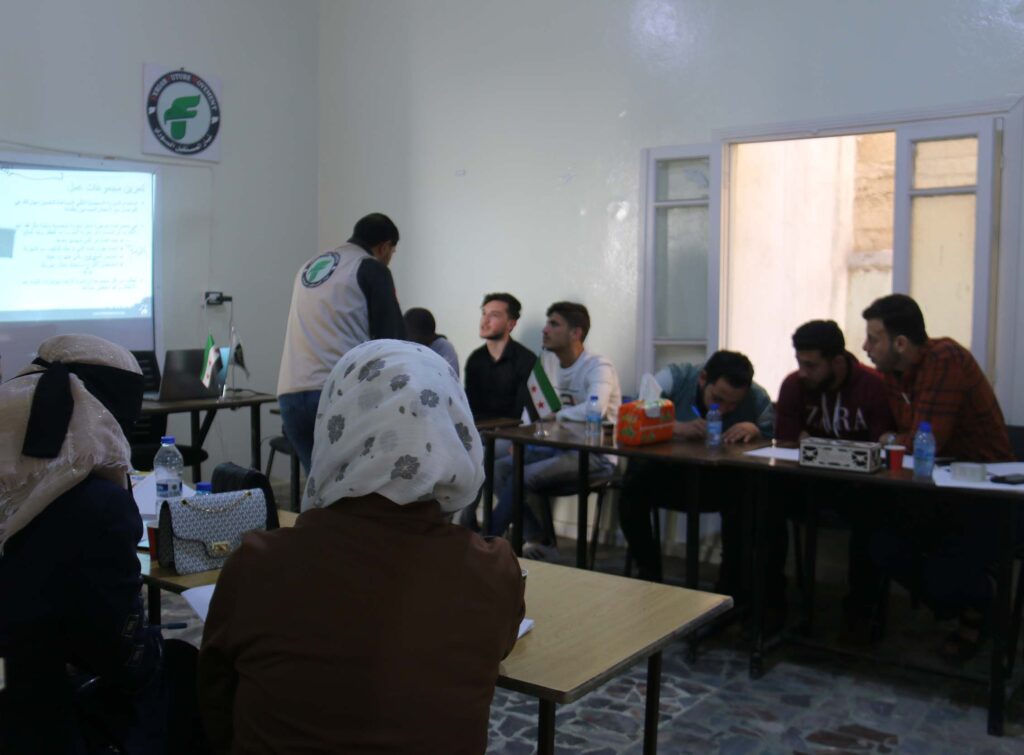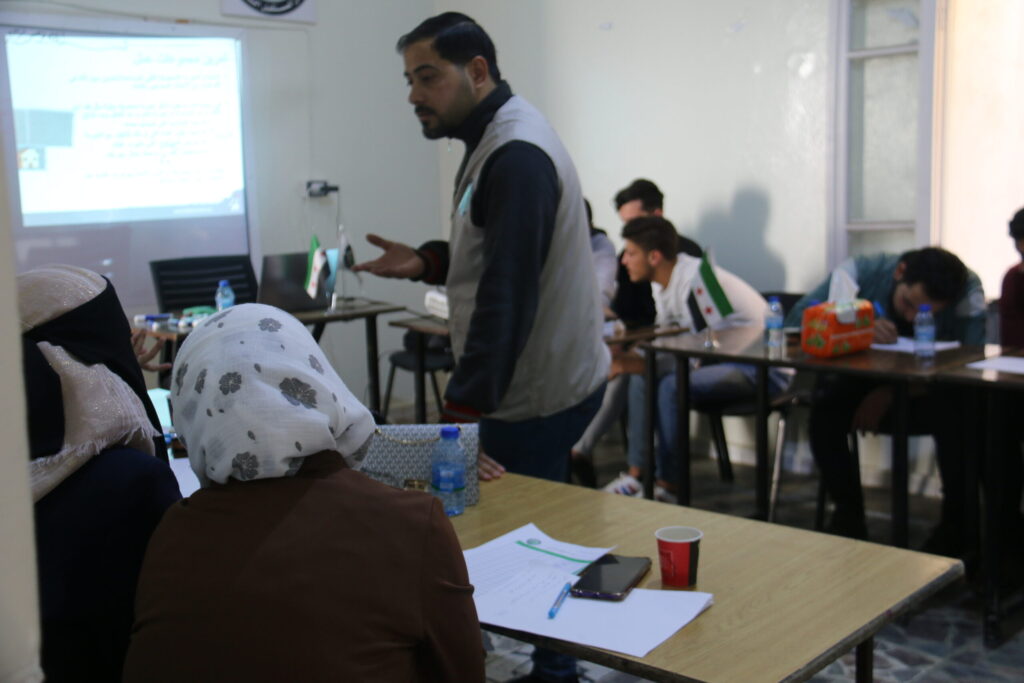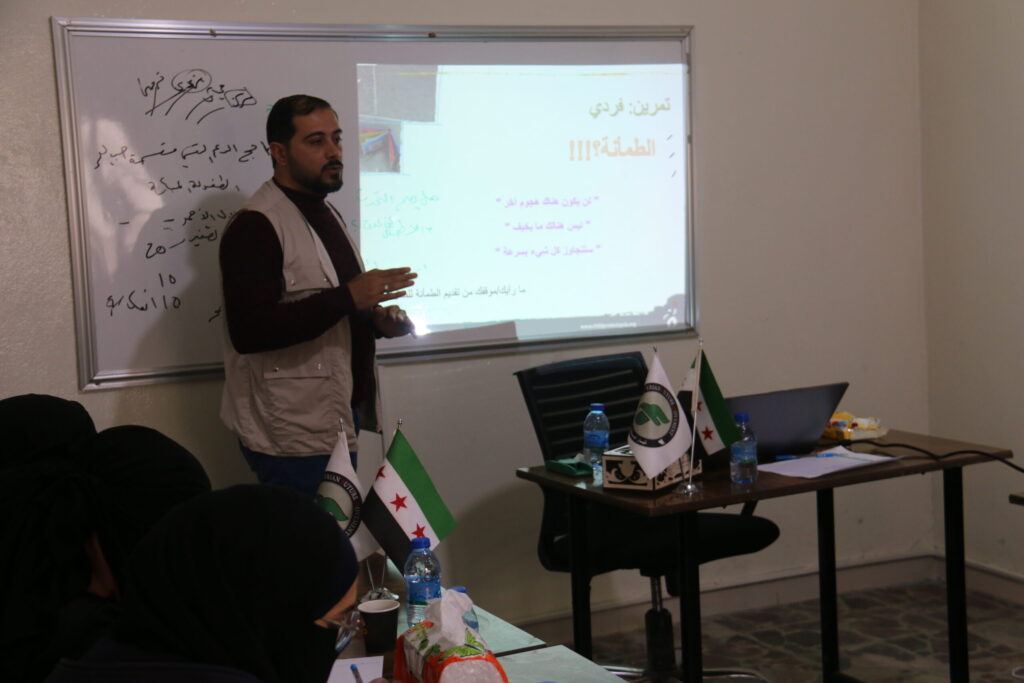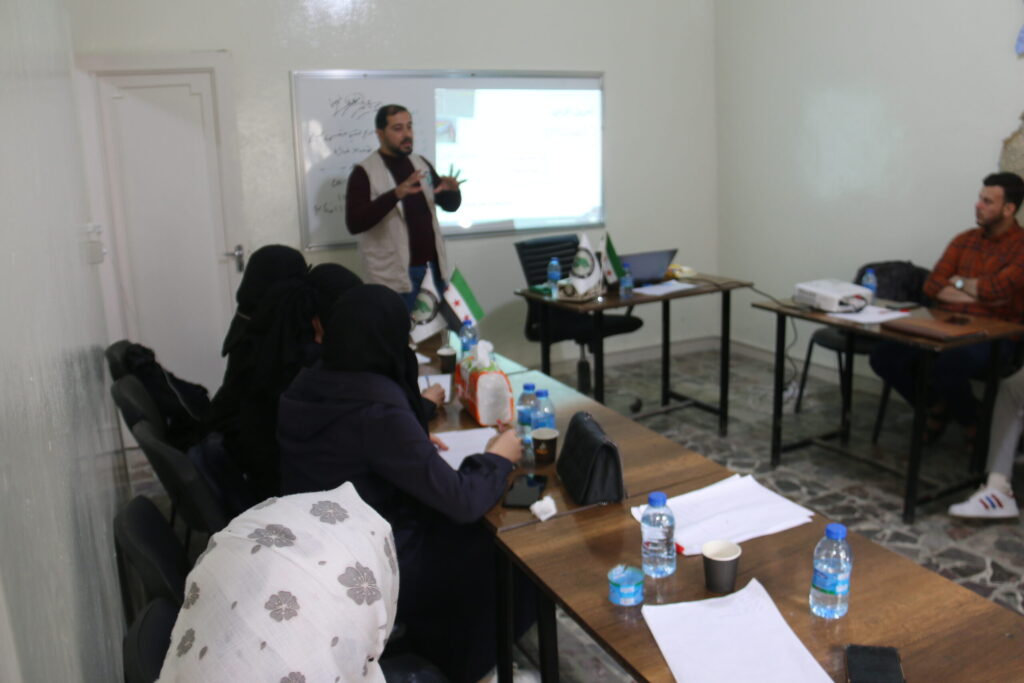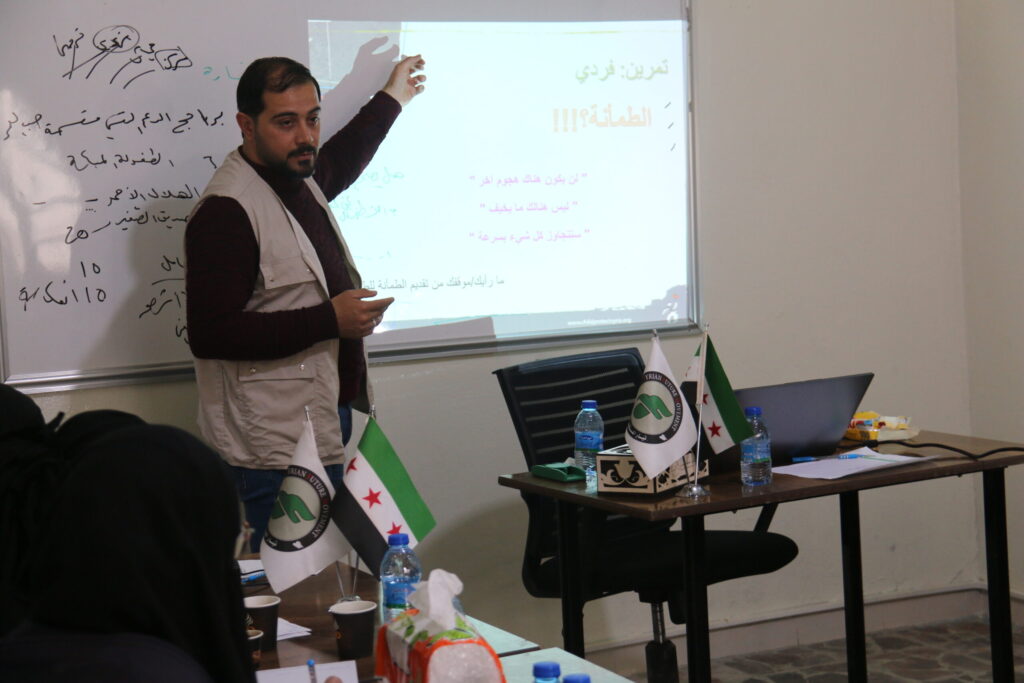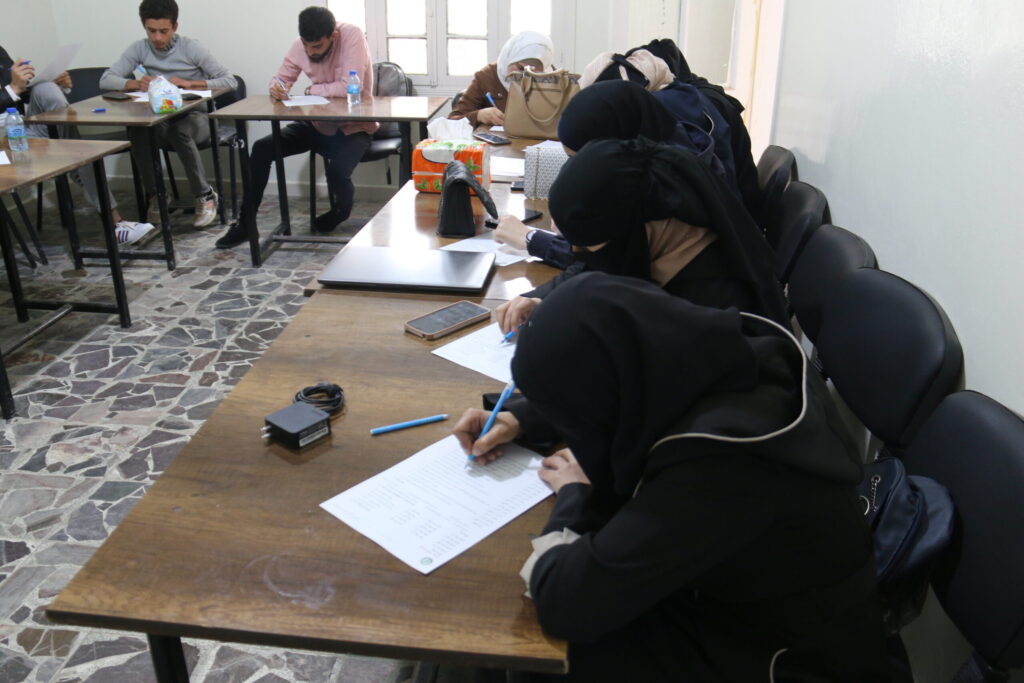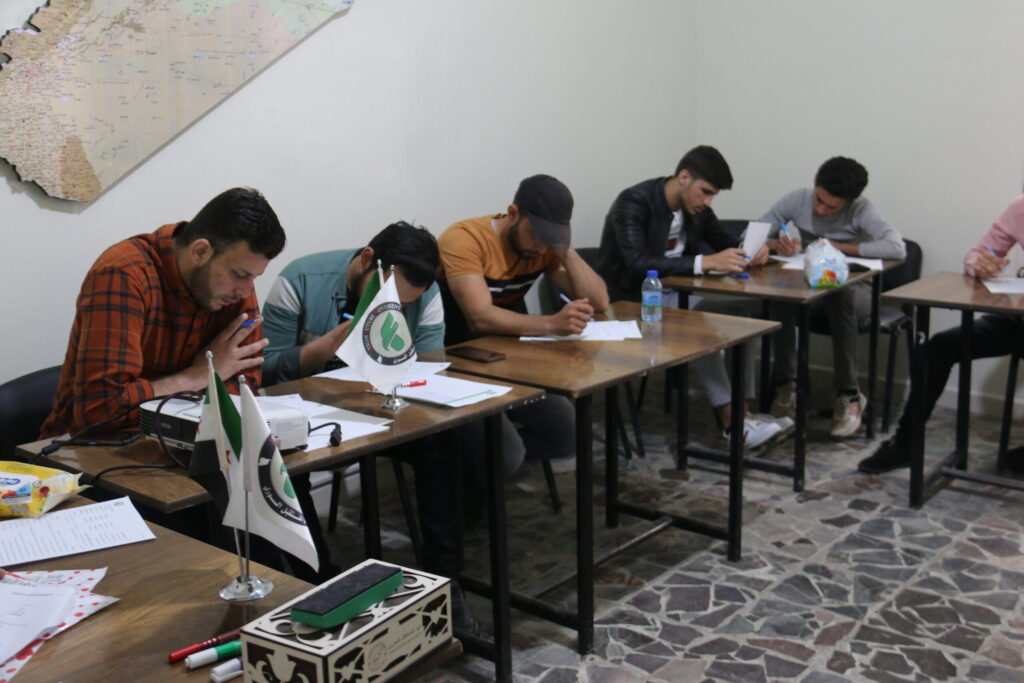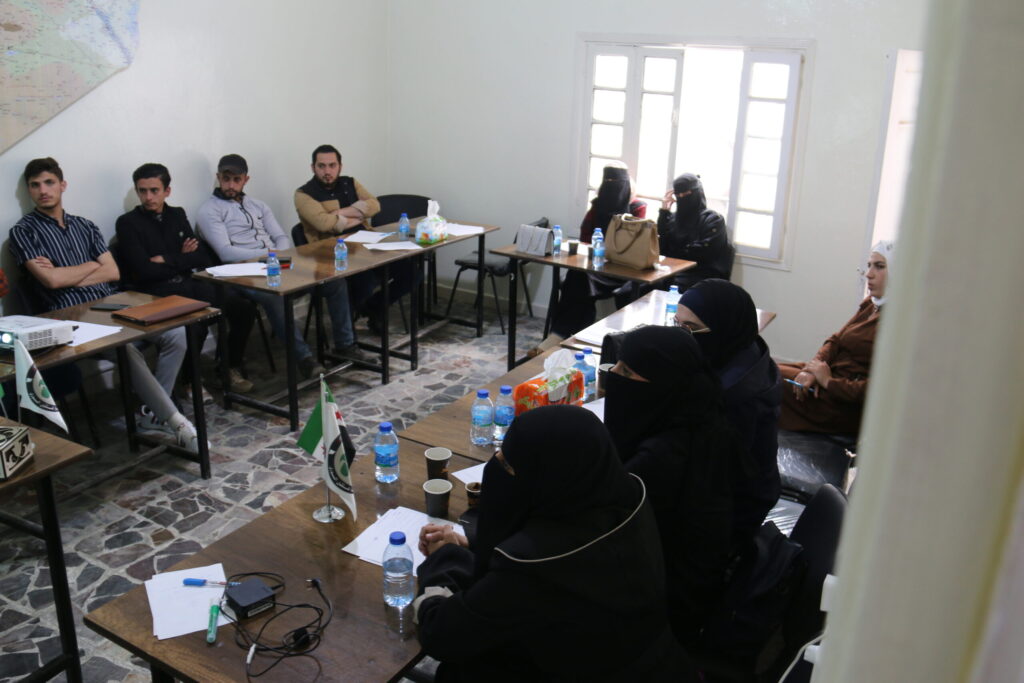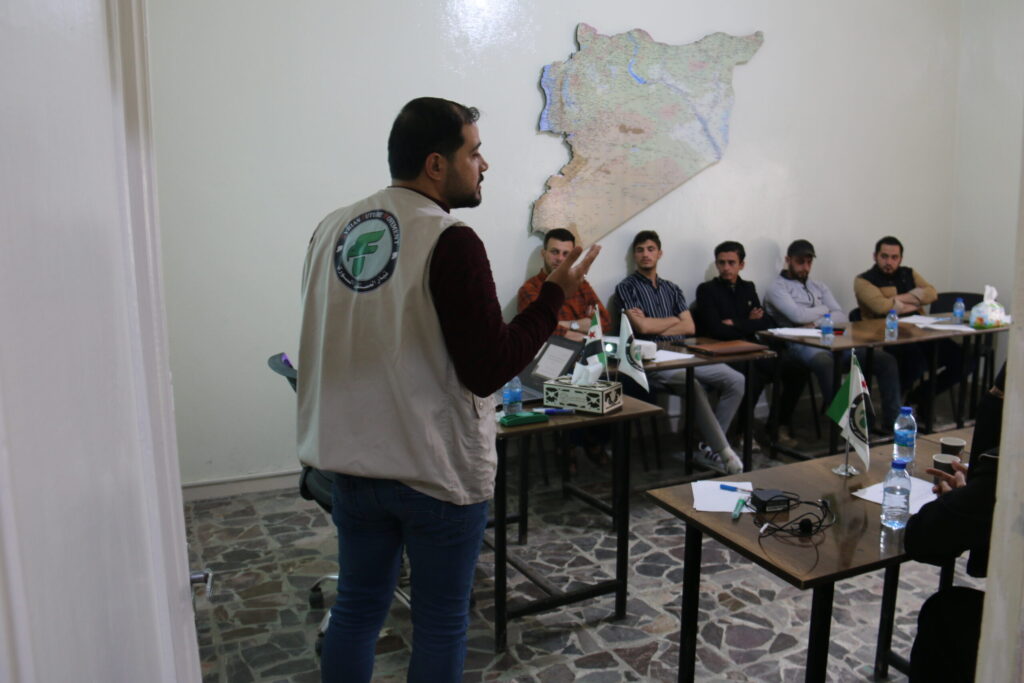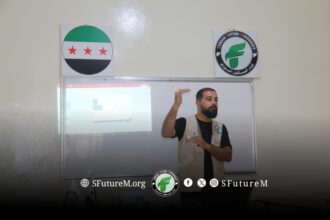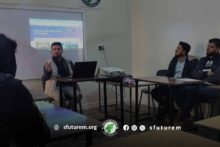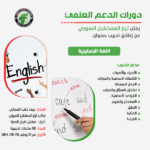Completion of the ‘Communication with Children’ training.

The Syrian Future Movement (SFM) completed a new training session titled “Communicating with the Child” in May 2024.
☆ The training targeted a number of specialists and activists, totaling 13 trainees, both male and female, with 14 training hours spread over 3 days.
☆ The goal and purpose of launching the training: to build the capacities of Syrian youth in the field of child communication.
☆ Type of training: physical attendance, where the trainees were present at the SFM office in A’azaz, north of Aleppo, and learned the following skills:
- The importance of communicating with children
- Convention on the Rights of the Child
- Cultural standards for communication
- Benefits of helpers
- Indicators of stress in children
- Case study (practical)
- Facilitating children’s self-expression
- Conversation skills (open-ended questions – closed questions – directed questions)
- Talking about death
- Discussing the past
- Communicating with children with special needs
☆ The training sessions were distributed over the days as follows:
|| The first day introduced trainees to:
● A discussion on the importance of communication in general
● The benefits of communicating with children
● Why it is necessary to attend such training
● Benefits of helpers for children to express what is on their minds
● Signs that indicate a need for communication
|| The second day:
● General indicators of stress in children
● Practical application
● How to give children the confidence to speak out and express themselves
● Types of questions for children
|| The third day:
● Talking about facts with children
● Reminding children of their past and discussing their memories
● How to communicate with a child with special needs
● The final test
♡ The training developed the trainee’s ability to critically analyze previously handled cases, noting mistakes and challenges to avoid them.
The training concluded on the third day and achieved its objectives through a trainee survey evaluating the training:
The location – the scientific material – the trainer…
The results were very positive, and the trainees expressed that the evaluation method was exceptionally professional, with each trainee writing their evaluation on a form that included the training’s positives, negatives, and challenges.
